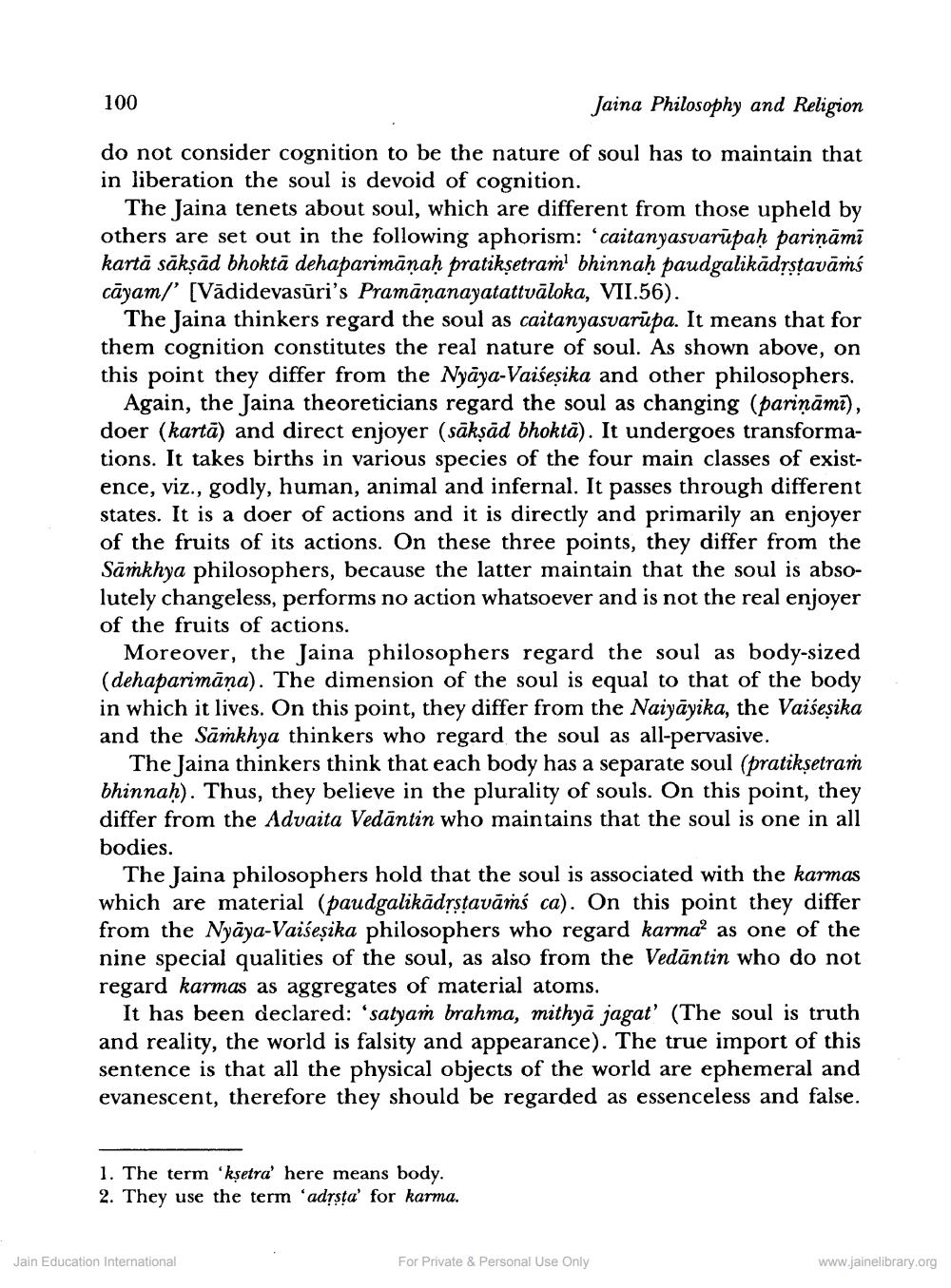________________
100
Jaina Philosophy and Religion
do not consider cognition to be the nature of soul has to maintain that in liberation the soul is devoid of cognition.
The Jaina tenets about soul, which are different from those upheld by others are set out in the following aphorism: 'caitanyasvarūpah pariņāmi kartā sākṣād bhoktā dehaparimāṇaḥ pratiksetram bhinnaḥ paudgalikādrstavāms cāyam/' (Vādidevasūri's Pramānanayatattvāloka, VII.56).
The Jaina thinkers regard the soul as caitanyasvarūpa. It means that for them cognition constitutes the real nature of soul. As shown above, on this point they differ from the Nyāya-Vaiseșika and other philosophers.
Again, the Jaina theoreticians regard the soul as changing (pariņāmi), doer (kartā) and direct enjoyer (sākṣād bhoktā). It undergoes transformations. It takes births in various species of the four main classes of existence, viz., godly, human, animal and infernal. It passes through different states. It is a doer of actions and it is directly and primarily an enjoyer of the fruits of its actions. On these three points, they differ from the Samkhya philosophers, because the latter maintain that the soul is absolutely changeless, performs no action whatsoever and is not the real enjoyer of the fruits of actions.
Moreover, the Jaina philosophers regard the soul as body-sized (dehaparimāna). The dimension of the soul is equal to that of the body in which it lives. On this point, they differ from the Naiyāyika, the Vaisesika and the Samkhya thinkers who regard the soul as all-pervasive.
The Jaina thinkers think that each body has a separate soul (pratiksetram bhinnaḥ). Thus, they believe in the plurality of souls. On this point, they differ from the Advaita Vedāntin who maintains that the soul is one in all bodies.
The Jaina philosophers hold that the soul is associated with the karmas which are material (paudgalikādęstavāmś ca). On this point they differ from the Nyāya-Vaiseșika philosophers who regard karma? as one of the nine special qualities of the soul, as also from the Vedāntin who do not regard karmas as aggregates of material atoms.
It has been declared: 'satyam brahma, mithyā jagat' (The soul is truth and reality, the world is falsity and appearance). The true import of this sentence is that all the physical objects of the world are ephemeral and evanescent, therefore they should be regarded as essenceless and false.
1. The term 'kşetra' here means body. 2. They use the term 'adrsta' for karma.
Jain Education International
For Private & Personal Use Only
www.jainelibrary.org




